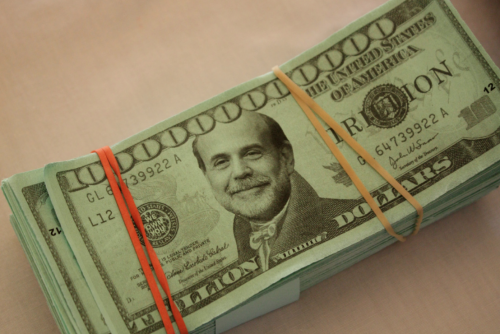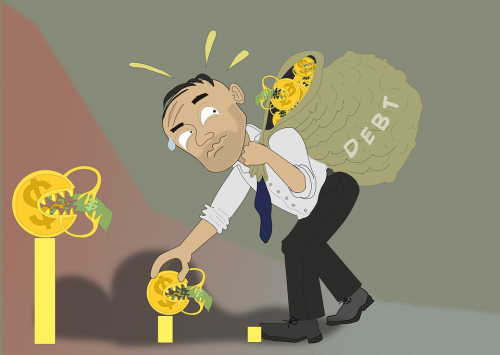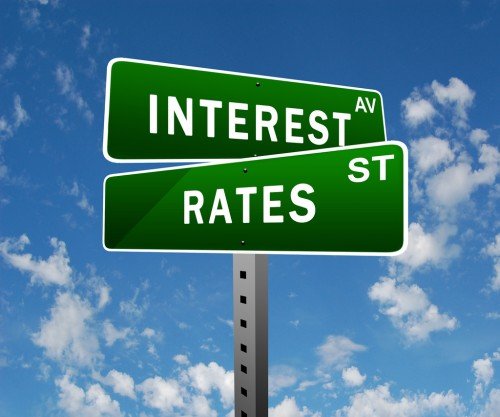3 Massive Mistakes I See Australian Property Investors Making

The average house price in Sydney is now over $1 million. Last weekend, the city recorded a median auction price of $1,222,500, up from $1,196,500 the weekend before. Property values in Australia’s largest capital cities have increased by as much as 50 percent in the last three years alone.
Many homeowners have felt the exhilarating rush of watching their net worth increase rapidly, and with practically no effort at all on their part. They just happened to own property in the right place at the right time, and now they’re basking in the glory of their good fortune.
But there is a problem; it’s a psychological problem. Having personally coached hundreds of investors, I’ve seen first hand that most people can intellectually differentiate between an unrealised gain and cash-money in the bank, but emotionally, they can’t.
Unrealised gains bring the emotional illusion of wealth, without the substance.

The former Chairman of the Federal Reserve, Ben Bernanke, spoke about this back in 2012. Here’s what he said:
To the extent that home prices begin to rise, consumers will feel wealthier, they'll feel more - more disposed to spend. If house prices are rising, people may be more willing to buy homes because they think that they'll, you know, make a better return on that purchase.
Yeah, uhm, you know, a better return, and all that stuff.
Bernanke says your unrealised gains will make you feel wealthier, and when you feel wealthier, you’ll buy more. What he fails to mention is that spending money you don’t yet have is a very dumb thing to do.
Here’s the top three dumbest things I've see property owners do in Australia’s crazy-hot real estate market:
1. They justify luxury purchases.

Driving around Sydney not long ago in my Hyundai rental car, I was amazed by all the new BMWs, Mercs, Land Rovers and Porsches I saw. As I pondered the reasons why money is pouring into the luxury car market, I began imagining the inner conversations many people may be having with themselves.
“I work hard and I spend an awful lot of time in my car driving to and from my damn job every day. I’m due for a bonus and a raise, and besides, my home has just appreciated by half a million dollars in the last two years. I’m such a smart investor. I should reward myself.”
This was not hard for me to imagine because I had just had a conversation with someone who had similarly justified his purchase of a $90,000 Range Rover.
During boom times, when people feel wealthy, they want to manifest those feelings. When assets have appreciated significantly, rather than going to the bank to get a car loan, they can simply draw down on the equity in one of their properties or take some saved up cash out of their mortgage offset account.
I try to remind Aussie investors often that unrealised gains do not make them wealthy. It only gives them the illusion of wealth. I try to help them not to be psychologically duped by their luck into believing that they deserve to spend some of these imaginary gains today. If and when property prices start moving against them, they will regret spending so much money on assets that go down in value.
2. They draw down on equity in their homes to speculate on ever-increasing property prices.

Low interest rates and significant capital growth in real estate has created an environment ripe for speculation. Many investors have been redrawing equity to use as deposits to buy more properties, raising their loan-to-value ratios back up to 80 percent or even higher. This can only turn out to be a profitable move if values continue rising. Of course, the more they rise, the less likely we'll see future capital gains .
One my primary responsibilities mentoring investors is to try to help them avoid this mistake. As I learned from someone who mentored me, the key is understanding the difference between focusing on the asset and focusing on the outcome.
Asset-focused investors rush out and acquire properties, assuming that all real estate perpetually goes up in value. In the end, this amounts to little more than gambling as you’re completely relying on the market gods to deliver profits.
Outcome-driven investors first determine their objectives, and then through careful planning and incremental goal setting, strategically acquire the assets that most appropriately correspond to their desired outcome. This outcome approach harnesses skill, rather than luck, to create wealth.
In the current property market, it’s becoming increasingly more difficult to find deals that will deliver a profitable outcome. Even renovations, subdivisions, and developments, typically strategies that can bring a profit in a flat market, are becoming more and more risky.
3. They fail to consider long-term borrowing costs.

Hot property markets are most often the result of easy lending policies and cheap money. With interest rates at historically low levels, many investors seem to be drunk on the euphoria of a rising market and failing to think long-term on interest rates.
It’s likely that rates will continue to fall further in the short-term. But eventually all financial variations tend to revert to a mean. Over time, whether through central bank policy, or unstoppable market forces, interest rates will tend to move back toward their historical average.
The average standard variable home loan rate in Australia from 1959 to 2016 was 8.53 percent. At that level, most investors today would see their interest costs double. Many would be under severe cash flow pressure, and some would default on their mortgages.
In the current irrational market brought on by low interest rates, I try to help investors have a long-term perspective. The temptation is to take advantage of the season and leverage up. Unfortunately, those who don’t manage around their interest rate risk may be in big trouble in the not-too-distant future.
Are you seeing any similar behaviour in the property markets where you live?

Great post as usual jason. The Australian real estate prices is definately substantial. It must be extremely difficult for the average person to get a foothold on the property ladder in those prevailing market conditions.
Thanks Ricardo. It definitely is. There are a lot of people, especially in Gen Y, who are angry about it and blaming the government. Some have parents helping them. Others are buying investment properties in more affordable regional areas and renting where they want to live. It will be interesting to see what happens in the near future. Something has to give.
Great write up! The market here in the United States is getting overheated as well in my opinion in several key areas. Seattle, Portland, LA, San Francisco . Phoenix is getting stupid in some areas and new builds are popping up all over the place to meet demand. Inventory is low in Tucson. Usually 30 days on market or less in key areas here. It will likely pop again within a couple of years. That is why I'm selling my property here now. When it pops I will buy all the toys that people are off loading. Boats, sports cars....etc. :-)
Thanks Brian. Yeah that's interesting, especially with Phoenix. I wouldn't have picked that as a city that was at risk of a bubble. But I guess as long as interest rates remain low, any large city will be susceptible.
The situation that happens with Phoenix is so many people start getting priced out of the California markets and move over to Phoenix. The new builds from 2004 - 2007 were out of control and the prices were shooting throught the roof. When the market crashed people walked away from their homes and moved in with friends and family. Then there were tons of bank owned properties all vacant. The vacancy rates in Arizona were throught the roof. Now the inventory has been soaked back up and the home builders are going crazy again. Once it crashes I can imagine the same exact thing happening again. Most people have very little to no skin in the game so they just walk away.
Interesting. I never considered a ripple effect from California.
The big difference with the Aussie market is there is no such thing as a non-recourse loan. People can't just walk away like they do in the States. The lender will bankrupt you, and bankruptcy here is a lot more painful and follows you for longer. If there are mass defaults though, I suspect the government will step in and change some laws in the borrowers favour.
Another great piece and thanks for sharing Jason. Happy to upvote and share this on Twitter✔ for my followers to read. Cheers. Stephen
Thanks for sharing this post on twitter. It's great also to see your last few posts getting a lot of upvotes. I wish I could keep up with your posting pace! :)
Thanks Jason I appreciate the support. Cheers. Stephen
Great post! In fact, it was so good that we decided to feature it in our latest newspaper. Read it here: https://steemit.com/steemplus/@steemplus/steemplus-friday-october-21-the-daily-newspaper-that-pays-you-to-find-high-quality-content
Thanks very much! :)
This post has been linked to from another place on Steem.
Learn more about and upvote to support linkback bot v0.5. Flag this comment if you don't want the bot to continue posting linkbacks for your posts.
Built by @ontofractal